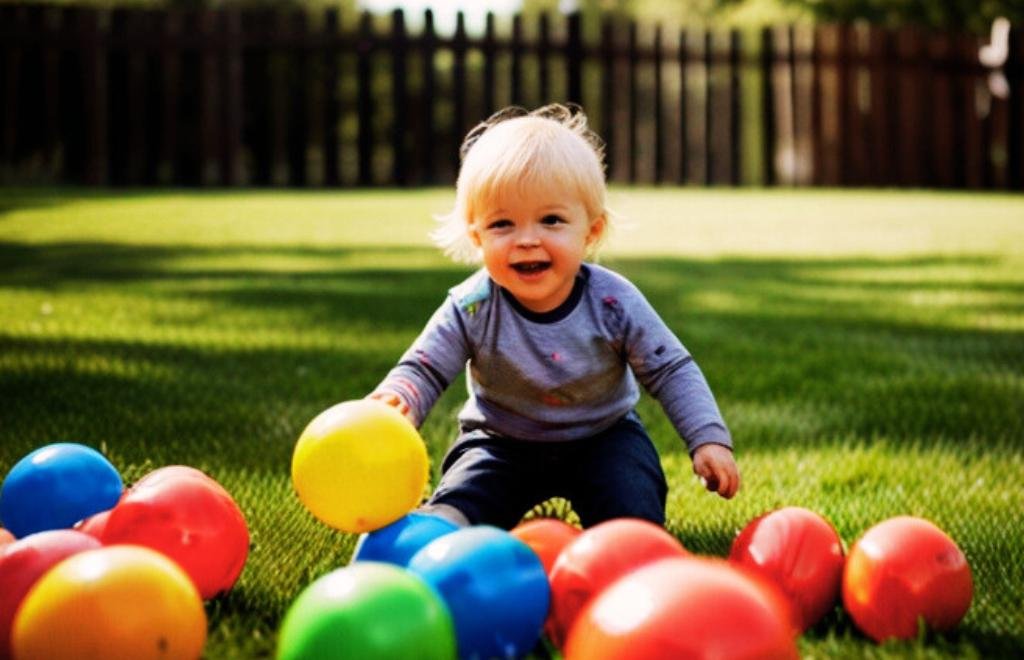In today’s fast-paced world, the importance of early childhood play cannot be overstated. Research has shown that engaging in early games not only fosters a stronger bond between infants and toddlers and their caregivers but also plays a crucial role in shaping their developing brains. This article delves into the benefits of early childhood games, the impact of play on bonding, and how play shapes infant-toddler relationships.
Benefits of Early Childhood Games
Early games play a pivotal role in the holistic development of infants and toddlers. Through play, children learn to explore their surroundings, develop their motor skills, and enhance their cognitive abilities. Moreover, engaging in early childhood games fosters creativity, imagination, and problem-solving skills. It provides a platform for children to express themselves and learn essential social skills, such as sharing, taking turns, and cooperating with others.
Cognitive Development
Early childhood games stimulate cognitive development by encouraging children to think critically, make decisions, and solve problems. For instance, playing simple games like peek-a-boo or stacking blocks can help infants and toddlers understand cause and effect, spatial relationships, and object permanence. These foundational cognitive skills lay the groundwork for future learning and academic success.
Motor Skills
Physical play is essential for the development of gross and fine motor skills in infants and toddlers. Activities such as crawling, climbing, and manipulating objects help children strengthen their muscles, improve coordination, and refine their hand-eye coordination. These motor skills are crucial for everyday tasks and pave the way for more complex physical activities as children grow.
Social and Emotional Development
Early games provide opportunities for infants and toddlers to interact with their caregivers and peers, fostering social and emotional development. Through play, children learn to communicate, share, and empathize with others. It also allows them to express their emotions, build self-confidence, and develop resilience. The bonds formed during playtime create a sense of security and trust, laying the foundation for healthy relationships in the future.
Early Childhood Play and Bonding
Play serves as a powerful tool for building and strengthening the bond between caregivers and infants or toddlers. When caregivers actively engage in play with their children, it creates a nurturing and secure environment that promotes attachment and emotional well-being. The shared experiences during playtime create lasting memories and deepen the connection between caregivers and children.
Quality Time
Engaging in early childhood games allows caregivers to dedicate quality time to bond with their infants and toddlers. Whether it’s through interactive games, storytelling, or sensory play, these shared experiences create a sense of closeness and security. This quality time fosters a strong emotional bond, instilling a sense of trust and comfort in the child.
Communication
Play provides a natural setting for communication between caregivers and children. Through play, caregivers can observe and respond to their child’s cues, fostering a deeper understanding of their needs and preferences. This open communication during playtime strengthens the caregiver-child relationship and creates a supportive environment for healthy development.
Emotional Regulation
During play, children experience a range of emotions, from joy and excitement to frustration and disappointment. Caregivers play a crucial role in helping children navigate these emotions, teaching them how to regulate their feelings and cope with challenges. This emotional support during play fosters resilience and emotional intelligence in infants and toddlers.
How Play Shapes Infant-Toddler Relationships
The interactions and experiences during early childhood play have a profound impact on shaping infant-toddler relationships. Play serves as a vehicle for children to explore, learn, and connect with others, laying the groundwork for future social interactions and relationships.
Building Trust
Engaging in play with caregivers creates a sense of security and trust in infants and toddlers. When children feel safe and supported during playtime, it fosters a positive and trusting relationship with their caregivers. This trust forms the basis for healthy attachment and lays the foundation for secure relationships in the future.
Social Skills Development
Early childhood play provides opportunities for children to develop essential social skills, such as sharing, taking turns, and cooperating with others. These interactions during playtime teach children how to navigate social dynamics, resolve conflicts, and build meaningful connections with their peers. These social skills are invaluable for forming and maintaining relationships as children grow.
Language Development
Play is a rich environment for language development in infants and toddlers. Through interactive games, storytelling, and pretend play, children are exposed to a variety of vocabulary and language structures. Caregivers can actively engage in conversations during play, expanding the child’s language skills and fostering communication abilities.
Conclusion
In conclusion, the power of play in early childhood cannot be underestimated. Engaging in early games not only benefits the cognitive, physical, and emotional development of infants and toddlers but also strengthens the bond between caregivers and children. By understanding the profound impact of play on infant-toddler relationships, caregivers can actively promote healthy development and create a nurturing environment for their children’s growth.
By incorporating early childhood play into daily routines, caregivers can lay the foundation for a lifetime of learning, exploration, and meaningful relationships. The benefits of early games extend far beyond entertainment, shaping the brains and bonds of infants and toddlers in profound ways. Embracing the power of play is a testament to the enduring impact it has on the holistic development of young children.





